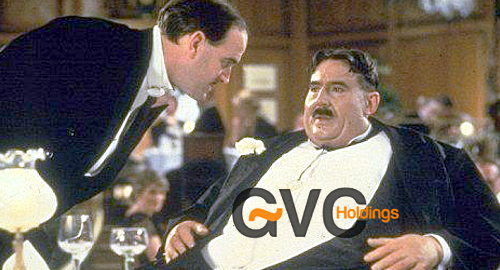 UK-listed gaming giant GVC Holdings saw its revenue and profit soar following its takeover of fellow UK operator Ladbrokes Coral Group.
UK-listed gaming giant GVC Holdings saw its revenue and profit soar following its takeover of fellow UK operator Ladbrokes Coral Group.
On Thursday, GVC announced that its revenue rose 8% year-on-year to £1.72b in the six months ending June 30, gross profit gained 6% to £1.1b, earnings improved 11% to £349.5m and the company booked an after-tax profit of £113.8m versus a £6.4m loss in the same period last year.
The above comparisons are calculated on a pro forma basis, assuming that GVC’s takeover of Lads-Coral, which was made official on March 28, was already a done deal in H1 2017. Also excluded: the Turkish black-market business that GVC ditched in late 2017 to ensure its Lads-Coral deal passed UK regulatory inspection.
GVC’s H1 gains were driven by strong digital performance, with its sports brands – bwin, Coral, Crystalbet, Eurobet, Ladbrokes and Sportingbet – reporting online revenue up 19% while its games brands – CasinoClub, Foxy Bingo, Gala, Gioco Digtale, PartyPoker and PartyCasino – were up 13%.
Sports betting handle rose 8% and margins also improved, pushing the sports brands’ digital betting revenue up nearly one-quarter to £390.4m. Gaming revenue was up 14% to £322.8m at the sports brands, while the games brands reported gaming revenue up 12% to £167m.
GVC’s original sports brands saw their revenue rise 23%, bested only by Ladbrokes Australia (+24%) and the Italy-facing Eurobet (+36%). The UK-facing sports operations of Ladbrokes.com and Coral.co.uk failed to keep pace, rising 7% and 12%, respectively, albeit under tough market conditions.
PartyPoker was the star of GVC’s games brands, with revenue up 36%, shaming the struggling GalaBingo, which eked out a comparatively poor 5% rise. PartyPoker’s gains were credited in part to this spring’s launch of shared liquidity between France and Spain, which have since become “amongst our fastest growing markets.”
GVC claimed that Ladbrokes.com’s performance “accelerated materially” in Q2, leading the company to suggest that the Ladbrokes brand is “finally becoming more relevant again in the UK online market after years of underperformance.”
GVC’s acquisition this spring of a majority stake in Georgian-facing operator Crystalbet benefited from a dramatic expansion of the site’s casino game product, and Crystalbet’s performance was deemed to be “very strong.”
WAIT, PEOPLE CAN GAMBLE OFFLINE?
Retail is a new phenomenon for the pre-merger online-only GVC, but the company nonetheless appreciated the 29% rise in European retail revenue to £134m, due in part to sports betting margins rising three points to 17.8%. European retail earnings shot up 83% to £28.8m.
UK retail fared less well, with overall revenue falling 5% to £664.6m, as sports betting handle was off 8%, thanks (allegedly) to dodgy Q1 weather turning formerly stiff-upper-lipped punters into agoraphobic wallflowers. Retail sports revenue was down 8% to £277.1m while machine gaming dipped 3% to £387.5m, which GVC CEO Kenny Alexander (not pictured above) blamed on the UK media’s relentless attacks on the fixed-odds betting terminals (FOBT) in betting shops.
CHALLENGES AHEAD
While GVC celebrated trading-to-date in Q3 getting off to a roaring start – group revenue up 14% year-on-year, with Crystalbet accounting for five points of that growth – the company is facing challenges in a number of its key markets.
In the UK, GVC said the government’s plan to cut the maximum FOBT stake from £100 to just £2 will likely result in the closure of 1k Lads-Coral betting shops. Combined with the planned increase in Remote Gaming Duty, GVC estimates the impact on its earnings to be £120m by the second full year of implementation, although it claims this impact will be “fully mitigated” by cost-saving moves.
In his call with analysts, Alexander said retail betting was in “structural decline” and predicted that UK retail profits would eventually account for “less than 15%” of group business. As for the looming restrictions, Alexander was philosophical, saying “it is what it is. Let’s get it enacted, get it implemented and let’s kick on.”
In Italy, GVC believes its 836-strong retail estate will enable it to endure the new government’s ban on gambling advertising and sponsorship, “as in-store recruitment of customers becomes the only viable way of attracting customers online.”
In Greece, GVC said it continues to believe there are “strong grounds to appeal” the government’s surprise €187m back-tax demand, such as the fact that this sum exceeds the revenue the Greek-facing Sportingbet brand generated during the period in question.
Nonetheless, GVC says it has so far paid £46.6m that is being “held on account by the relevant authority” and the company expects whatever sum it pays into this account will eventually be repaid or deducted from future tax liabilities, assuming GVC wins a new Greek online gambling license.
In Switzerland, the new gambling rules have pushed GVC into “discussions” with an unspecified land-based casino operator regarding an online casino/poker partnership (online sports betting being limited to local lottery operators). Should these talks fail to produce a deal – possibly because of the bwin brand’s local ‘reputation’ – GVC says not to worry, as the country accounts for less than 1% of group revenue.
As for GVC’s US-based joint venture with casino operator MGM Resorts, Alexander said his company was “in the best possible position” to benefit from the continued expansion of legal sports betting and online gambling in the US. Alexander told analysts that the GVC-MGM deal was one “that everyone wanted to do” and boldly predicted that the tandem would “be the market leader in the US in five years.”